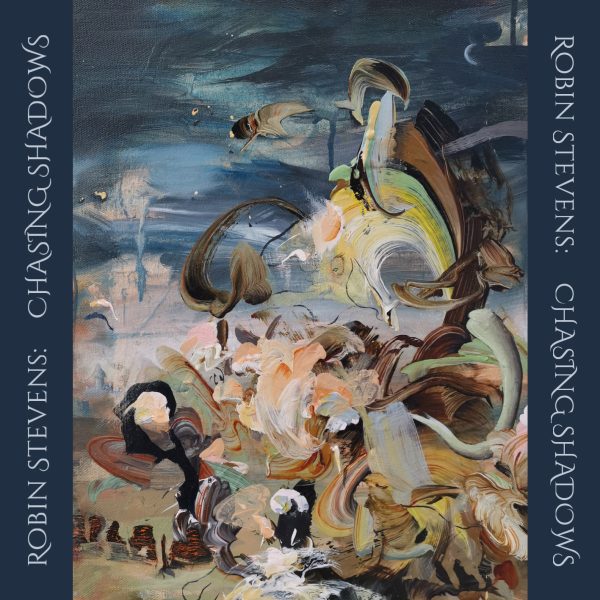Fanfare
This is the third disc of music by Welsh composer Robin Stevens (b. 1958) to be reviewed in Fanfare: the String Quartets and String Quintet appeared in 44:1, while a mixed woodwind disc (entitled Prevailing Winds) appeared in 43:6. A disc of music for cello and piano, performed by two of the performers on the present disc, Nicholas Trygstad and David Jones, is also available.
The Clarinet Quintet (2019–20) is supremely well scored. Stevens opts for the slightly darker-toned A clarinet (as opposed to the more standard B-flat), which also allows him an extra semitone at the bottom of the range. This piece is a substantive statement, lasting over half an hour in toto; the first movement alone is around twelve-and-a-half minutes. This opening movement is certainly complex, but engagingly so, especially in the rather “pastoral” opening. The ear is tickled by the possibilities of the material; thornier, more dissonant sections are tempered by an overarching lyricism. Rosa Campos is a superb soloist, agile and actively engaged in dialogue with her colleagues. The composer himself speaks of a “Chaos theme,” which sits in high contrast to moments of much more carefree demeanor. Stevens also brings in new themes around the half-way mark; another signpost might be a moment of absolute radiance towards the end of the movement. Intriguingly, Stevens opts to score one passage for strings with practice mute, producing a more pronounced timbral shift than with a standard mute. The return to the opening’s pastoralism is most effective, as is the sheer energy of the Scherzo; the sound is colored by microtonal inflections. The performance of this movement is simply magnificent, with every tricky corner negotiated with aplomb. Although it lasts only 2:28, this really is the perfect demonstration of studio technical perfection married to the sense of live performance. The Adagio con moto sits as the emotional heart of the work, though, and contains more moments of utter radiance. The composer links it to the Adagio of his 1981 String Quintet. The use of fugato in the Clarinet Quintet differs in that it loses tonal focus. The care with which this music is constructed is as palpable as the care that clearly went into this performance; the occasional Bergian twist is most effective, and then suddenly the music turns. The finale begins as if in search for a way forward; that way, it turns out, is via a rhythmic rapid throbbing that propels it forwards. Yet the movement is far more complex to describe, and the appearance of stasis a minute or so before the end takes us to hitherto uncharted waters. The recorded perspective (St. Thomas’ Church, Stockport, recorded by Phil Hardman) is well-nigh ideal.
Borrowing its title from the third movement of Dutilleux’s Métaboles, Obsession (2015) could hardly be more different. Rhythmic displacements abound, and a sense of play seems just as important as the creation of tension. Occasionally the music shifts towards modern jazz (particularly in the piano “break” towards the end). This is a thoroughly enjoyable piece, superbly played by Alexander Jones on double-bass and David Jones on piano. The other piece on the disc for double-bass and piano, Chasing Shadows (2015), is fascinating in its composed dislocation between the two instruments. It must be challenging but ultimately fun to play; there is a delicious unpredictability for the listener. David Jones’s clear articulation is a real boon here, with Alexander Jones negotiating the not inconsiderable differences on his double-bass with remarkable ease.
Both the Fantasy Trio (2009) and Romantic Fantasy (2010) formed part of Stevens’ doctoral portfolio at the University of Manchester. And yet, the solo cello line that opens the Fantasy Trio seems to spring directly from the double-bass line ofObsession (which actually was written six years later). The scoring here is for flute (doubling piccolo), classical guitar, and cello, which turns out to be a combination of great textural transparency. A set of four variations precedes the main part of the piece, itself based on three well-differentiated ideas. The music is Modernist in harmony but light in touch, a most fascinating and ultimately affable combination. Again, the chamber music aspects of clear communication, superb ensemble, and dovetailing are evident. Craig Ogden hardly needs an introduction, and his guitar playing is everything one might expect, commanding and confident. Amy Yule is the agile flutist/piccoloist, with Nicholas Trygstad again excelling. There is a sense of magic everywhere here. At some 15 minutes this is an extended piece, but it feels not a note too long; a glistening piccolo brings the work to its close.
Finally, Romantic Fantasy (2010) is a one-movement, 23-minute piece for flute/piccolo, B-flat clarinet, string quartet, and harp (and therefore using the same forces as Ravel’s Introduction and Allegro, with the exception of the occasional bit for piccolo). In a sense the piece acts as what the composer calls a “compositional bridge” between his earlier chamber works and the larger-scale orchestral pieces later on. It is not to Ravel, but to Bartók, that Stevens turns for the structure, invoking the latter’s symmetrical arch form, although we do hear echoes of the Ravel work in some of the textures. All credit is due to Rosa Campos for her stunning clarinet cadenza, and to all concerned for giving such a magnificent performance of the piece. There is a sense of laser-like concentration everywhere. This disc of “music for mixed ensemble” by Robin Stevens is cherishable; the performances and recording are beyond criticism.
@divineartrecordingsgroup
A First Inversion Company
Registered Office:
176-178 Pontefract Road, Cudworth, Barnsley S72 8BE
+44 1226 596703
Fort Worth, TX 76110
+1.682.233.4978












